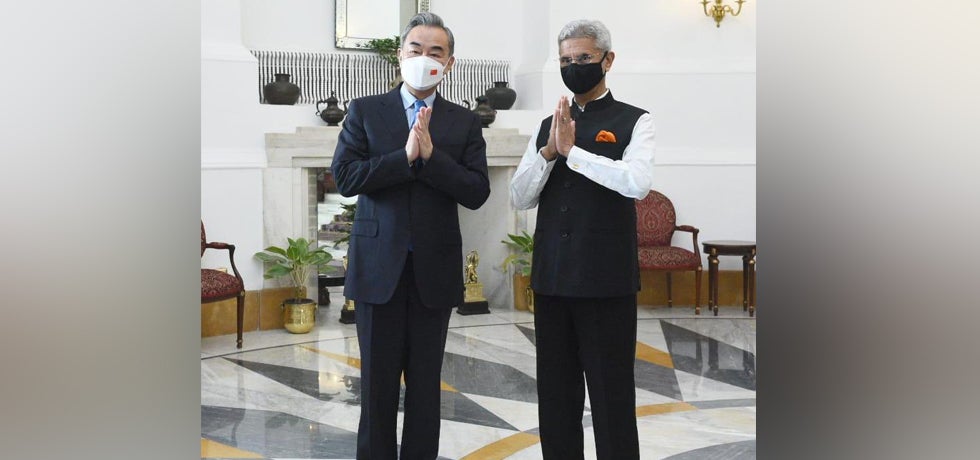India says relationship with Beijing ‘cannot return to normal’ amid border tensions
The foreign ministers of both countries held talks on Friday

Your support helps us to tell the story
From reproductive rights to climate change to Big Tech, The Independent is on the ground when the story is developing. Whether it's investigating the financials of Elon Musk's pro-Trump PAC or producing our latest documentary, 'The A Word', which shines a light on the American women fighting for reproductive rights, we know how important it is to parse out the facts from the messaging.
At such a critical moment in US history, we need reporters on the ground. Your donation allows us to keep sending journalists to speak to both sides of the story.
The Independent is trusted by Americans across the entire political spectrum. And unlike many other quality news outlets, we choose not to lock Americans out of our reporting and analysis with paywalls. We believe quality journalism should be available to everyone, paid for by those who can afford it.
Your support makes all the difference.India’s foreign minister S Jaishankar said his country’s relationship with China cannot return to normal as bilateral ties remain “disturbed” because of a contested border area.
In a press conference after a three-hour-long meeting with Chinese foreign minister Wang Yi on Friday, Dr Jaishankar said he was “very honest” in discussing India’s issues with Mr Wang over an almost two-year-long border standoff in the Himalayan region.
“Frictions, tensions arising from China’s deployments since April 2020 cannot be reconciled with normal relationship between two neighbours,” Dr Jaishankar said in the presser that was not attended by the visiting Chinese official.
The two Asian powers amassed weaponry and soldiers in several locations in the northern Himalayan region of Ladakh in June 2020.
The standoff has spiralled into a string of violent clashes. A deadly clash in the Galwan valley – the worst escalation in hostilities between the countries in 50 years – left 20 Indian and four Chinese soldiers dead.
Mr Wang landed in New Delhi late Thursday evening after visiting India’s rival, Pakistan, and Afghanistan. He will conclude the last leg of his south Asian tour with a three-day visit to Nepal.
Dr Jaishankar said more work was needed to improve relations between Delhi and Beijing.
“If you ask me if our relationship today is normal, then my answer is ‘no, it is not normal’. Our effort today is to sort out the issue in its entirety,” he said.
The foreign minister’s acknowledgment of the situation at the border comes as prime minister Narendra Modi has been accused of falling short of addressing the standoff directly and downplaying Chinese aggression in public statements.
“Our discussion today was how to take this forward. So long as there are very large deployments in the border areas, clearly the border area situation is not normal. We have a situation there which is not normal,” he said.
“There should not be attempts to unilaterally change the status quo.”
In a statement, Mr Wang urged India and China to speak in one voice for the world to listen and resolve differences.
His visit was shrouded in secrecy as India’s foreign affairs ministry had not announced it as is normal protocol.
“For whatever reason, the Chinese did not want this set of visits to be announced earlier. Since we did not have mutual understanding, it was not announced,” said Dr Jaishankar.
Both sides also discussed their own approaches to tackling Russia’s invasion of Ukraine.
“Both of us agreed on the importance of an immediate ceasefire, as well as a return to diplomacy,” Dr Jaishankar said.
India and China each consider Russia an ally and have rejected western pressure to condemn Russia’s invasion, including UN resolutions calling on Vladimir Putin to withdraw forces from Ukraine.
Join our commenting forum
Join thought-provoking conversations, follow other Independent readers and see their replies
Comments